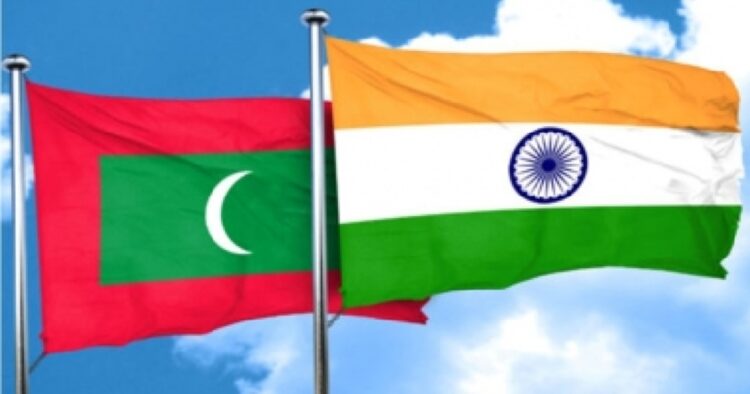In a move aimed at addressing concerns over rising tensions between Male and New Delhi, the Bharatiya government has decided to allow limited exports of crucial goods to the Maldives. These goods include staples like sugar, wheat, rice, and onions. The decision comes amidst growing worries about increased Chinese influence in the region, as the Maldives has shown signs of shifting away from its historically close ties with Bharat.
The decision to permit exports to the Maldives comes ahead of the upcoming Lok Sabha elections. It is seen as an effort to maintain stability in local prices while also addressing diplomatic tensions. India, known for being a major exporter of rice, sugar, and onions, had previously imposed restrictions on the export of these food items.
According to the government’s notification, shipments of these commodities to the Maldives during the 2024/25 financial year, which began on April 1, will not be subject to any present or future export restrictions or prohibitions. This move aims to ensure a steady supply of essential goods to the Maldives without hindrance.
The approved exports to the Maldives cover a range of commodities, including rice, wheat flour, sugar, potatoes, onions, and eggs. The quantities allowed for export include 124,218 metric tons of rice, 109,162 tons of wheat flour, 64,494 tons of sugar, 21,513 metric tons of potatoes, 35,749 tons of onions, and 427.5 million eggs. These exports are crucial for meeting the nutritional needs of the Maldivian population.
Additionally, the government has permitted the export of 1 million tons each of stone aggregate and river sand. These materials are essential for construction projects and infrastructure development in the Maldives. By allowing their export, India aims to support the Maldives’ economic growth while also maintaining bilateral trade relations.
The decision to permit exports to the Maldives comes at a time when the island nation is undergoing a political shift. Since the election of President Mohamed Muizzu in October, there have been indications of a shift towards Beijing, despite the Maldives’ historical ties with India. This move by the Indian government seeks to address diplomatic tensions while ensuring the continued supply of essential goods to the Maldives.

















Comments